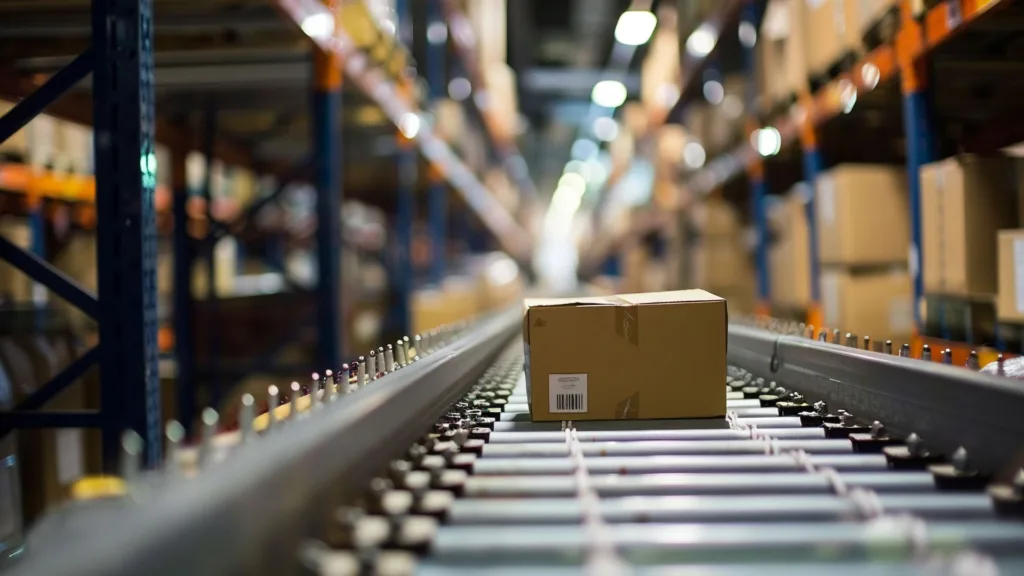Artificial intelligence (AI) is revolutionising supply chain management, offering unprecedented opportunities for collaboration and increased efficiency. In an increasingly complex global market, AI-powered solutions are becoming essential for companies to remain competitive. This article explores how AI is transforming supply chain collaboration and driving innovation in the industry.
The role of AI in the supply chain: increasing collaboration and efficiency
The integration of AI into supply chains is not just a trend - it represents a fundamental shift in the way organisations operate and collaborate. The global market for AI in the supply chain is expected to reach USD 14.3 billion by 2028, with a compound annual growth rate (CAGR) of 45.3% from 2022 to 2028 [1]. This rapid growth underlines the critical role of AI in modernising supply chains through improved data sharing, more accurate forecasting and collaborative decision making.
Collaboration is the foundation of effective supply chain management. Studies show that 79% of companies with high-performance supply chains achieve sales growth above the industry average [1]. AI facilitates this collaboration by creating a shared database that is accessible to all partners, optimises processes and promotes transparency.
The transformative power of AI in the supply chain and its processes
AI and machine learning are fundamentally changing supply chain processes through advanced predictive analytics and optimisation capabilities. A study shows that 61% of executives reported cost reductions after implementing AI in their supply chains, while 53% reported increased sales [2].
The most important advantages of AI in the supply chain are:
1. Reduction of forecast errors by up to 50%
2. Reduction of stock levels by up to 40%
3. More precise demand forecasts
4. Optimised route planning and logistics
5. Improved inventory management
These AI-driven improvements contribute to a more agile and responsive supply chain and enable companies to adapt quickly to market changes and customer demands.

AI-driven innovations in the supply chain: inventory and procurement management
AI is driving significant innovation in the area of inventory management and procurement. Companies using AI-powered procurement processes have realised cost savings of 5-10% and efficiency gains of 30-50% [3].
In procurement, AI:
1. Strategic procurement through comprehensive supplier data analysis
2. Identification of optimal prices
3. Evaluation of supplier risks
4. Processing and analysing unstructured data from various sources
These functions improve decision-making and strengthen relationships with suppliers, leading to more efficient and cost-effective procurement processes.
Smart AI supply chain solutions and automation for greater efficiency
The combination of automation and AI leads to intelligent supply chain solutions that increase efficiency and reduce errors. The market for intelligent supply chain solutions is expected to reach USD 30.91 billion by 2027, at a CAGR of 9.1% from 2020 to 2027 [4].
The integration of blockchain technology with AI also improves visibility and traceability in supply chains. Research shows that 62% of companies are investing in the combination of blockchain and AI to increase transparency and trust in their supply chains [4]. These technologies create immutable transaction records and use AI to analyse patterns and predict potential disruptions to ensure smoother operations.
Future trends and benefits of AI in the supply chain and logistics
Emerging trends in the AI-supported supply chain include:
1. Autonomous vehicles
2. Advanced robotics
3. Deeper integration of the Internet of Things (IoT)
The implementation of AI in supply chains offers numerous advantages:
1. Improved forecast accuracy (25-30 % improvement)
2. Reduced storage costs (20-30 % savings)
3. Higher customer satisfaction
4. 15 % niedrigere Logistikkosten
5. 35 % lower inventories
6. 65 % shorter delivery times [5]
These advances position AI as a key technology for promoting innovation and competitiveness in the supply chain.
Conclusion: Using AI in the supply chain for more collaboration and efficiency
The future of supply chain collaboration lies in the use of AI technologies to increase efficiency, transparency and agility. As AI continues to evolve, its impact on supply chain management will continue to grow, offering companies new opportunities to optimise their operations and remain competitive.
By utilising AI-powered solutions, companies can create more resilient, responsive and collaborative supply chains that drive business growth and customer satisfaction.
Are you ready to transform your supply chain with AI? Discover how Circly's AI-powered solutions can improve collaboration, increase efficiency and future-proof your business. Contact us today and schedule a demo to take the next step towards an intelligent supply chain!
Sources:
[1] https://www.sciencedirect.com/science/article/pii/S0166361524000605
[2] https://www.tandfonline.com/doi/full/10.1080/00207543.2023.2232050
[3] https://www.emerald.com/insight/content/doi/10.1108/oir-02-2024-0083/full/html
[4] https://www.mdpi.com/2673-4591/76/1/68
[5] https://link.springer.com/article/10.1007/s10479-025-06534-7
[6] How AI is smoothing out the bullwhip effect in supply chains
[7] AI improves trust and information exchange in supply chains